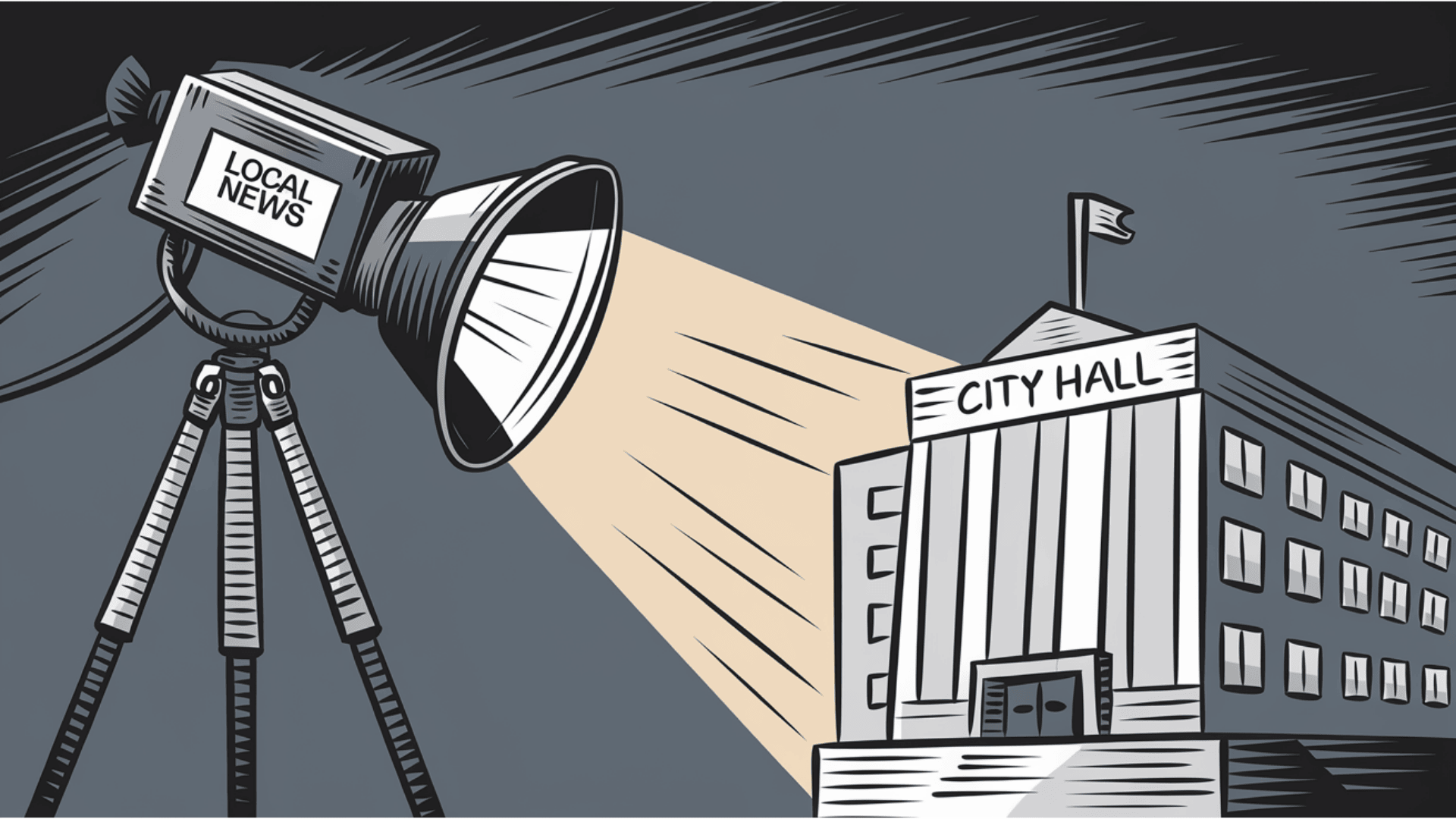Have you ever wondered who keeps your mayor honest when they’re spending your tax dollars? Local news investigations serve as the watchdogs of democracy in communities across America.
They shine light on government spending, policy decisions, and official conduct that directly affects your daily life.
These reporters work tirelessly to protect taxpayer interests and democratic values. Many people are unaware of the significant influence local journalism has in combating corruption.
A single investigation can expose misconduct, recover misused funds, or change harmful policies.
In this blog, I’ll show you exactly how local news investigations hold officials accountable, why this matters for your community, and how you can support these vital efforts.
You’ll learn about the tools reporters use, see real examples of impact, and understand ways to engage with investigative work in your area.
What Is Local Investigative Journalism?
Local investigative journalism goes beyond daily news reporting. It involves deep research into government actions, spending patterns, and official decisions that affect your community.
Key features include:
• Long-term research: Reporters spend weeks or months gathering documents.
• Public records analysis: Using freedom of information laws to access files.
• Source development: Building relationships with government insiders.
• Community focus: Stories directly impact local residents’ lives.
Unlike national outlets, local reporters have a deep understanding of their communities. They attend city council meetings regularly and monitor county commissioner hearings.
This personal knowledge enables them to spot problems more quickly and establish trust with sources over the years.
How Local News Holds City Council Accountable

City council members make decisions about your taxes, services, and quality of life. How local news holds city council accountable involves several proven methods that keep these officials honest.
Regular oversight includes:
• Attending every public meeting to monitor votes.
• Tracking attendance records for each member.
• Reviewing financial disclosure forms for conflicts.
• Following up on campaign promises made during elections.
Investigative reporters dig deeper into council actions. They examine development deals that might benefit members personally.
They investigate nepotism in city hiring. Without this coverage, critical issues would pass unnoticed. Tax increases, zoning changes, and development approvals need public scrutiny.
Real-World Examples of Investigative Reporting
Local investigations have exposed scandals and recovered taxpayer money across the country. These examples show the real impact of accountability journalism.
Financial misconduct cases that made news:
• A mayor in Ohio used city credit cards for personal vacations, leading to criminal charges.
• School superintendents in Texas received unauthorized pay raises worth $100,000 annually.
• County commissioners in Florida steered road contracts to family construction companies.
Service failures exposed by local news:
• Water treatment plants that falsified safety test results for years.
• Police departments that ignored complaint patterns against specific officers.
• Health inspectors who accepted bribes to overlook restaurant violations
Each investigation led to real change. Officials resigned or faced charges. Policies changed to prevent future problems. Taxpayer money was recovered through legal action.
Local vs. National Investigative Reporting
Understanding how local and national journalism differ helps explain why both matter for democracy.
| Aspect | Local Investigative Reporting | National Investigative Reporting |
|---|---|---|
| Primary Focus | City budgets, school boards, county issues | Federal agencies, national policies |
| Story Examples | Zoning disputes, misuse of city funds | Corporate scandals, national security |
| Community Impact | Direct effect on residents’ daily lives | Broad impact on the policy level |
| Access to Sources | Local officials, public employees | High-level officials, whistleblowers |
| Reader Connection | Strong personal relevance | Important but often feels distant |
Local reporting creates faster change because officials face immediate community pressure. National stories influence policy but take longer to affect daily life.
How Investigative Reporting Works in Small Towns
Small-town investigations present unique challenges and opportunities that differ significantly from those in big-city reporting. How investigative reporting works in small towns often involves personal relationships that complicate coverage.
Small communities offer distinct advantages for investigative work. Officials are more accessible for interviews and questions.
Public records are easier to obtain quickly from smaller government offices. Community pressure leads to faster policy changes when problems arise. Stories have an immediate, visible impact that residents can see directly.
However, small-town reporters face specific challenges. Limited staff means wearing multiple hats while juggling investigations with daily coverage.
Personal relationships with officials being covered make maintaining objectivity more difficult. In tight-knit communities where everyone knows everyone, maintaining professional distance becomes a constant challenge.
How to Submit a Tip to a Local News Outlet
Community members play a vital role in strengthening accountability journalism. When residents share credible information, they provide reporters with the leads needed to uncover wrongdoing.
Before contacting reporters:
• Gather basic facts like names, dates, and dollar amounts.
• Collect supporting documents such as receipts or emails.
• Note potential witnesses who can confirm your information.
Contact methods that work best:
• Email the newsroom with a clear, specific subject line.
• Call during business hours when reporters are available • Use anonymous tip lines if the outlet provides them.
Most reporters prefer written tips because they can reference details later. Be patient after submitting information. Good investigations take time to develop properly.
How Local News Reveals Misuse of Funds

Financial investigations require specialized skills and tools that enable reporters to track money through complex government systems and financial networks.
How local news reveals misuse of funds involves a systematic analysis of spending patterns.
Reporters compare current spending to historical averages and cross-reference vendor payments with the terms of the contracts. They analyze credit card statements for personal purchases and track expense reimbursements for travel and meals.
Technology enables reporters to quickly analyze large datasets, revealing patterns in thousands of transactions that connect payments to specific officials or departments.
Why Community Support Matters
Local newsrooms rely on community support to maintain their watchdog role. Without reader support, these investigations simply won’t happen in your area.
Ways residents can support accountability journalism:
• Subscribe to your local newspaper or news website.
• Share important investigative stories on social media.
• Provide credible tips about potential government problems.
• Write letters supporting transparency and open records laws
Studies show government spending increases in areas that lose local newspaper coverage. Civic participation declines when residents lack access to reliable information about their leaders.
Strong local journalism saves taxpayers money in the long term and builds public trust in institutions.
Conclusion
Local news investigations remain essential guardians of democracy at the community level. How local news investigations hold officials accountable through systematic reporting and strengthen democratic institutions.
These reporters uncover corruption that costs your community money. They expose service failures that affect your family’s safety and well-being.
Their work directly improves how the government serves citizens. Although newsrooms face budget challenges, their impact on governance stays strong.
By subscribing, engaging, and valuing local reporting, you help ensure that these watchdogs continue to protect your interests. Democracy functions most effectively when citizens remain informed about their government.
What local government issue in your community deserves more investigation, and how might you help your newsroom tell that story?






































